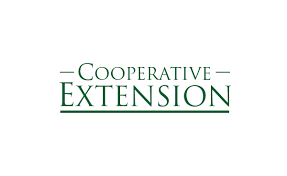Written By: Jesse Ketterman, Jr., PhD AFC®
Often I hear the question, what is Extension. Recently I had an opportunity to participate in a bus tour for our state Extension system and thought I would share what I learned. Extension is the non-formal education system of land grant institutions. The Morrill Act of 1862 laid the foundation to establish schools to teach agriculture. Cooperative Extension was formed in 1912 with the passage of the Smith Lever Act. Cooperative Extension became a partnership between United States Department of Agriculture and land grant institutions to provide research and education in agriculture. Over time, Extension evolved beyond agriculture into family and consumer sciences and youth leadership (4-H). Our tour took us across the state to visit the land-grant institutions, research and education centers, and Extension offices. It is through this partnership that research based programs are delivered to the community.
So let’s go back to family and consumer sciences (FCS). FCS evolved from home demonstrations that focused on the daily aspects of farm family life. Such topics included family management, food preservation, and disease prevention. The National Institute of Food and Agriculture (NIFA) describes FCS today as providing resources to advance community vitality and family well-being. The concept of financial well-being is an integral component of Family and Consumer Sciences.
At AFCPE you will find Extension professionals from Family and Consumer Sciences engaged in all aspects of the profession. Faculty (Extension Specialist) members from land-grant institutions are conducting research, leading presentations, and learning new trends to bring to the classroom. Extension Agents (Field based faculty) are sharing applied research, program impacts, and learning new skills to bring back to the local community. And most importantly, we are all working to contribute to AFCPE.
As you read this article, you may wonder what Extension can do for you. There is an Extension program in every state in the United States. Some of us serve as Extension Specialist working on a university campus while other serve as Agents providing programs and workshops directly to the community. Many Extension educators with a focus on family finance or financial literacy are AFC® certified. We work with K-12 students and adults of all ages. We identify the needs within our community and reach diverse and low income populations. Using a variety of curriculums and in some cases develop new ones, we are a resource for you.
As I finished the bus tour and wrote this article, I developed greater insight into the role of Extension in our community. I learned about how the federal government through land-grant institutions has leveraged federal, state, and local dollars to strengthen communities through education and research. I visited local Extension offices to see how practitioners are engaging in activities to promote rural and urban agriculture, engage in youth development through 4-H clubs, and promote community vitality and family well-being. I toured research and education facilities to see how research was being conducted to protect natural resources, increase productivity of farmers, and ensure safe production of fruits, vegetables, and animals. As I wrap up, I encourage everyone to visit their local Extension office.
